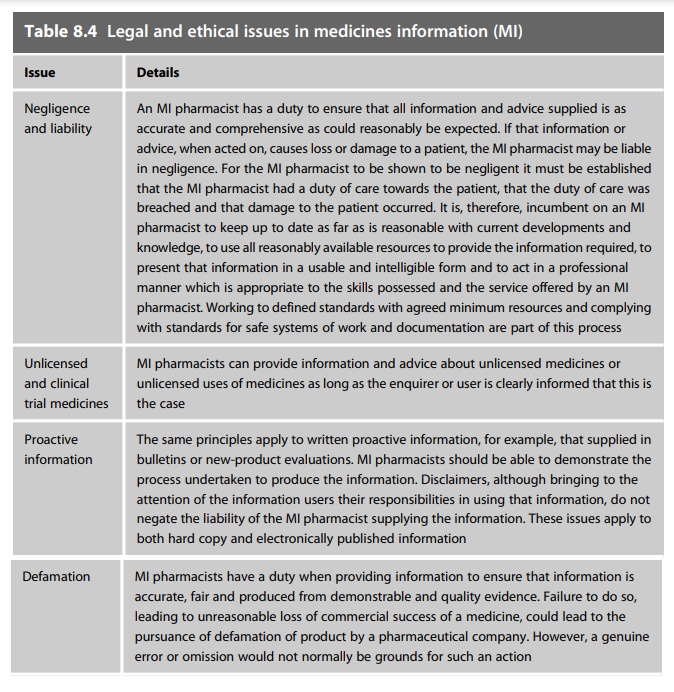Ethics and legal issues
| Home | | Hospital pharmacy |Chapter: Hospital pharmacy : Medicines information
All pharmacists should be aware of the legal and ethical principles governing the practice of the profession. There is no specific UK case law relating to the provision of MI by hospital pharmacists.
Ethics and legal issues
All pharmacists
should be aware of the legal and ethical principles governing the practice of
the profession. There is no specific UK case law relating to the provision of
MI by hospital pharmacists. The whole pharmacy profession is governed by the
legal and ethical principles set out by its own regulatory body, and published
in Medicines, Ethics and Practice – A Guide for Pharmacists and Pharmacy
Technicians. Although it contains no specific reference to the practice of MI,
the section ‘Code of Ethics and Professional Standards’ does include statements
which have direct applicability to the practice and provision of MI,
including: (1) acting in the interests of patients and the public; (2) keeping
up to date; and (3) respecting confidentiality. Specifically regarding
information provision, the guide states: ‘Be accurate and impartial when
teaching others and when providing or publishing information to ensure that you
do not mislead others or make claims that cannot be justified.’
MI pharmacists are
also a source of advice on legal and ethical issues routinely confronting all
pharmacists, as well as on all legal and ethical issues relating to the
prescribing, supply and administration of medicines by other healthcare
professions. UKMi has published guidelines that cover the legal and ethical
issues confronting MI pharmacists in the course of their duties. These are,
again, issues that will need to be considered by all pharmacists, but which
have a more immediate significance to an MI pharmacist. The main issues are
identified in Table 8.4.

Related Topics
